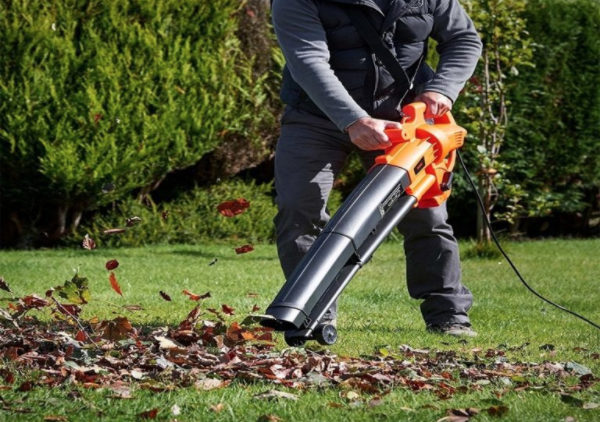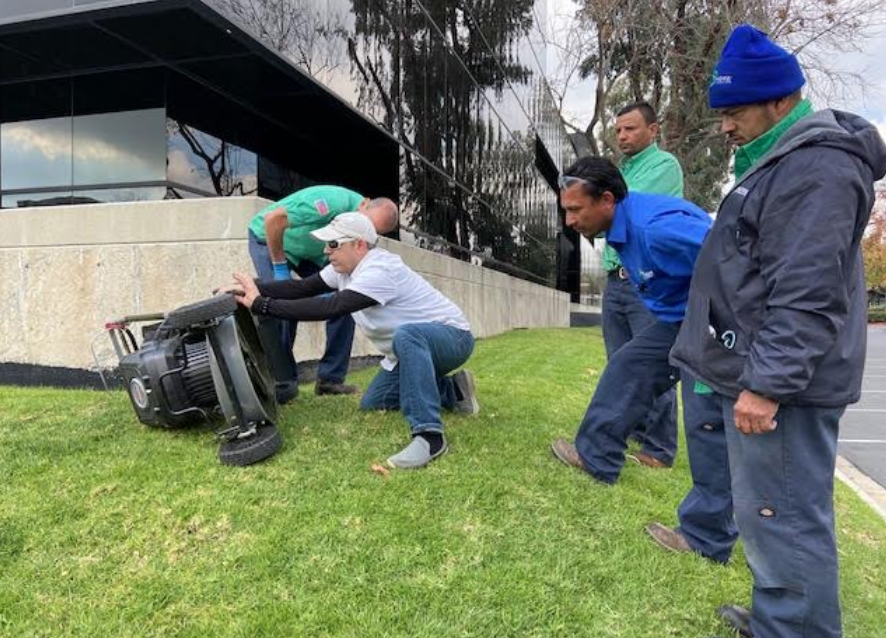Going Green on Yard Maintenance
Copyright © 2020 American Green Zone Alliance
All rights reserved. No part of this presentation may be reproduced, distributed, or transmitted in any form or by any means, including photocopying, recording, or other electronic or mechanical methods, without the prior written permission of the American Green Zone Alliance. For permission requests, Email AGZA at djmabe@agza.net, subject line permission to use AGZA presentation – Thank you.
agza.net
There are two main ways that AGZA achieves its goals: one is by certification of a property that has transitioned to green practices as an “AGZA Green Zone.” The second way is by awarding AGZA accreditation or certification to service professionals who have undergone instruction and training. This AGZA accreditation gives the service professional a marketing advantage. AGZA also works with air quality management agencies in promoting equipment exchanges, conducts workshops, and gives presentations like this one.

Campaigns to green up yard maintenance began with the leaf blower. Over 200 communities across the US have some sort of ban or restriction on gas-powered leaf blowers. A major issue with gas blowers is the noise. Worker protections agencies set noise limits between 75 and 85 dB, depending on the agency, above which the worker must wear ear protection. The noise from most electric blowers is 75 dB or less. Most gas blowers operate above the thresholds. Moreover gas blowers operate at low frequency. The noise of most electric blowers is high frequency. Low frequency noise travels further and penetrates barriers more.
Gas blowers are the most polluting of lawn equipment. Their exhaust gives off poisonous toxic gases, greenhouse gases, and very small particulate matter. There is a considerable amount of evaporation of unburned gasoline from leaf blowers as well. Additional impacts of gas blowers include health risks, toxic waste, solid waste, inefficiency, vibration, gas and oil, maintenance, and expense.

The use of gas-powered equipment creates pollutants that have numerous impacts on human organs, and on air, water, and land. These pollutants affect foremost the operator of the equipment, secondly the surrounding community, and lastly the planet.
AGZA advocates for the health of the worker. Dan helped Fair Warning do a study comparing exposure to pollutants from an assortment of lawn equipment to standing at a busy intersection. The leaf blowers were 20 to 53 times worse than the busy intersection.
South Pasadena was the first community to establish a Green Zone. Their Green Zone has been in place 5 years. The city began by asking the vendor they used for grounds maintenance to work with AGZA and the public works department to make Garfield Park the city’s first Green Zone. AGZA then worked with the city to make an action plan for all city property to likewise use only electric tools. There are plans to make the entire city a Green Zone.
AGZA Green Zone certification is available to our community now. AGZA has been funded by the South Coast Air Quality Management District to complete four to six Green Zone projects by the end of the year. During training Dan will let workers try out different brands of equipment. He will also train them in proper and more conservative use of the blower. For example, workers are taught to stop and pick up piles of leaves more often, rather than continue to move an increasingly huge pile of leaves with the blower. He also instructs workers to use the lowest blower speed that will get the job done, thereby minimizing damage to the soil, wildlife, and habitat, and minimizing the amount of dust that is blown up into the air.
Dan discussed equipment exchange programs. For residences, the exchanges are limited to lawn mowers, where the homeowner can get a discount of up to $250. For commercial workers the exchanges extend to several types of lawn equipment, including leaf blowers. Workers can get state of the art electric equipment for up to 75% off by trading in their old functional equipment. AGZA has had a lot of success in getting independent operators to trade in old polluting leaf blowers.
During the Q and A, Dan offered to assist listeners in choosing electric equipment – he is not permitted to recommend brands, but he has a lot of information on the different brands. He emphasized that equipment with a higher voltage rating was not necessarily better. If a homeowner needs help persuading her gardener to go green, Dan is willing to come and speak with the gardener and show him alternative equipment.
In answer to a question on how to get neighbors aboard, Dan said that AGZA has just started a new campaign: Residential Green Zone Initiative to designate homes a Green Zone. Signs announcing “AGZA gas-free yard” are posted in the yards of Green Zone homes.

Learn more about AGZA at AGZA.net HERE.
Dan’s email is DJMabe@agza.net.
